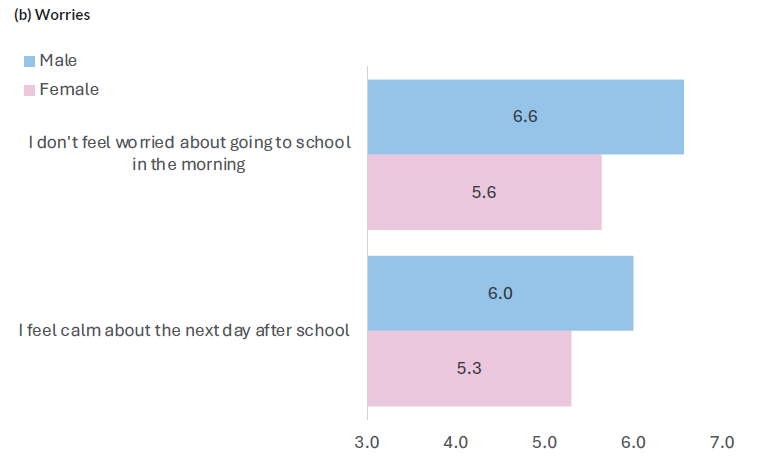More than one in four pupils begin to disengage from school during Year 7, a landmark study of pupils has found, with engagement particularly low among girls and disadvantaged pupils.
The report, published today, is believed to be the largest-ever study of pupil engagement in England.
It used insights from over 100,000 pupils across England through The Engagement Platform (TEP), to examine how engagement changed across the 2024–25 academic year.
The study was carried out by the Commission on Engagement and Lead Indicators – led by education research organisation ImpactED Group in partnership with union ASCL, Confederation of School Trusts (CST), The Reach Foundation, and Challenge Partners.
It found Year 7 marks a steep, and lasting drop in pupil engagement.

Pupils’ average school enjoyment – using TEP’s 0-10 reporting scale – drops from a score of around six in Year 6, to just 3.8 in Year 7, before falling further to 3.2 in Year 8.
Headline engagement – which includes how willing pupils are to recommend the school to others, and how happy they are with it – follows the same downward trend and does not fully recover.
There is a strong link between headline engagement scores and attendance, among secondary pupils, the study found.
Secondary pupils in the top 25 per cent of headline engagement scores in November 2024 were 10 percentage points less likely to be persistently absent from school than pupils in the bottom 25 per cent.
Girls feel less safe
The study also found that while girls report feeling marginally safer than boys at school during primary school, between Year 7 and Year 9, they increasingly feel less safe at school than boys.
Pupils eligible for free school meals also reported lower levels of trust, enjoyment and belonging – with the disadvantage gap widening as they progress through secondary school.

Data shows that feeling safe in schools falls from 7.21 in Year 7 to 5.89 in Year 9 for female pupils, and from 7.40 to 6.55, respectively, for male pupils.
Around a third of pupils in England give heir feeling of safety at school a score of five or below.
Meanwhile, the data shows that those who are eligible for free school meals are 0.4 points less likely to report trusting and liking other children at their school, as well as 0.3 points less likely to report respecting other children.
The gap in their levels of trust, enjoyment and belonging, compared to their peers then appears to widen as they progress through secondary school.
The study, under the research direction of Professor John Jerrim from UCL IOE, raises questions about how to approach the secondary school transition and the start of Key Stage 3 in English schools.
Attitudes in England are ‘atypical’
The study also compared the results to international data.
It found that while engagement declines through school “in almost every country”, the magnitude “is more pronounced in England”, suggesting disengagement is not just a symptom of age “but something atypical” that is happening in England.
Meanwhile, boys report greater confidence in peer and teacher support.
The data shows a strong correlation between pupil engagement and staff engagement, with pupils reporting higher levels of engagement if teachers are more engaged in their jobs.
The study also found high levels of academic drive and desire to succeed in England. Most pupils want to do well at school, with scores averaging 8.8.
‘Crucial’ to understand when pupils disengage
Researchers and sector leaders say understanding granular data on engagement means schools will be able to act before declining engagement turns into falling attendance or outcomes.
A report from maths charity Axiom Maths also found the proportion of pupils describing school as “fun” fell 15 percentage points between term one and two of year 7, down to just 58 per cent.
Meanwhile, reported levels of stress rose from 42 per cent to 50 per cent between the end of year 6 and term two of year 7.
“These emotional and perceptual changes are early warning signs,” said Axiom CEO David Thomas.
“Our research shows that confidence begins to fade before pupils even reach Easter of Year 7. If we don’t intervene early, we may miss our chance to help them excel.”







The sheer size of schools and the constant moving around accounts for feelings of safety and trust going down for pupils. Schools need to consider fewer changes of teacher and classrooms, especially for pupils with additional needs in the 1st few years of secondary school.